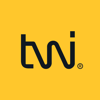Web & Mobile App Dev for Healthcare Organization
- Mobile App Development
- $50,000 to $199,999
- Sep. 2022 - Mar. 2023
"We're looking forward to working with Twenty Ideas again."
- Other industries
- Eugene, Oregon
- 1-10 Employees
- Online Review
- Verified
Twenty Ideas developed a web and mobile app for a healthcare organization. The app featured several functionalities such as registration, onboarding, scheduling, follow-up notification, and Chatbot sessions.
Twenty Ideas skillfully delivered the project ahead of schedule, exceeding the client's expectations. The service provider demonstrated excellent project management and communication through weekly check-in meetings. Their availability, innovation, and expertise were exemplary.

